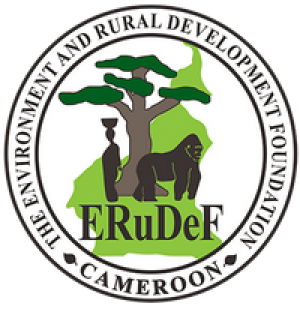[one_third] [/one_third]The agricultural sector in Cameroon occupies an important place in her economy. It employs 70% of active population and contributes to 30% of gross domestic product (Momo 2011).Today, at least 55% of peasant farmers live in the rural community by practicing subsistence agriculture (MINADER, 2008). They use archaic tools; destroy soil substrate by abusively using chemical products, wrong soil tillage, and faster stubble burning (Önder, Ceyhan, & Kahraman, 2011) . According to Sikod 1985, farmers have little knowledge on soil degradation, conservation, biodiversity and crop rotation process. The major causes of biodiversity loss are fragmentation, degradation and habitat loss, the over exploitation of natural resources, air and water pollution, traditional slash and burn agriculture, introduction of non-native species and climate change (Slingenberg et al., 2009). Sustainable use of biodiversity is an important tool for facilitating conservation by reconciling it with the needs and expectation of poor farmers (Williamson cited by IUCN, 2002).
[/one_third]The agricultural sector in Cameroon occupies an important place in her economy. It employs 70% of active population and contributes to 30% of gross domestic product (Momo 2011).Today, at least 55% of peasant farmers live in the rural community by practicing subsistence agriculture (MINADER, 2008). They use archaic tools; destroy soil substrate by abusively using chemical products, wrong soil tillage, and faster stubble burning (Önder, Ceyhan, & Kahraman, 2011) . According to Sikod 1985, farmers have little knowledge on soil degradation, conservation, biodiversity and crop rotation process. The major causes of biodiversity loss are fragmentation, degradation and habitat loss, the over exploitation of natural resources, air and water pollution, traditional slash and burn agriculture, introduction of non-native species and climate change (Slingenberg et al., 2009). Sustainable use of biodiversity is an important tool for facilitating conservation by reconciling it with the needs and expectation of poor farmers (Williamson cited by IUCN, 2002).
In the West, Littoral, Southwest and Northwest Regions of Cameroon, the problem of food insecurity is a major course for concern. According to MINADER 2008, the rate of food production does not match with the population growth rate. At least 40% of Cameroonians live below the poverty margin, hence, they are unable to afford the basic necessities (nutrition, health, education and accommodation).
To solve these problems, this project seeks to improve on food security and income of resource poor farmers while ensuring sustainable environmental protection. This will be done by creating protective and healthy farm through agro-forestry and agriculture development in Cameroon.
5000 Farmers in 75 communities will increase their yield on crop production by 200%.
The Farmers’ productivity will increase from 0.5 to 2 tons per hectare.
Increase productivity of rural landscape.
[one_third] [/one_third]
[/one_third]
For this to be realised, the following earmarked activities will be carried out:
Build capacity for Farmers on Agroforestry technique: Farmers yield will increase on crop production by 200%, thus, solving the problem of food insecurity and improving on the nutrition.
Support farmers to alleviate poverty through value added chain and farm optimization techniques: Farmers will be able to increase on their agricultural productivity from 0.5 tons of crops per hectare to 2 tons per hectare. More job opportunities will be created for especially youths and women. Non-timber forests products (NTFP) are characterised by their non-perishable nature. Therefore, farmers can sell the surpluses to manage the lean season. During the lean season, the unit cost of NTFPs can vary from US$20/kg up to US$24/kg.
[one_half] [/one_half]Ensure the sustainable management of farmland: farmers will increase productivity of rural landscape by establishing a responsible agricultural system.
[/one_half]Ensure the sustainable management of farmland: farmers will increase productivity of rural landscape by establishing a responsible agricultural system.
In conclusion, the project “Mainstreaming capacity building for livelihood into agro-biodiversity management” will go a long way to change the lives of poor farmers by improving on their economic well-being through the value added chain development and farm optimization model. This project can also be of benefit to our ecosystem through tree planting into farms and water catchment.
In other to realise this project, some US$79 will be needed to sponsor one poor resource farmer to plant 200 trees in his/her farm per year. Five thousand farmers in Seventy Five Communities are engaged in this project. Therefore, a total of US$391,928 will be needed to carryout this activities in the next 5 years
To achieve these, a team of agroforestry technicians from the Environment and Rural Development Foundation (ERuDeF) who have been working in this location for the past 10 years will implement the project. For more information, visit www.erudef.org
